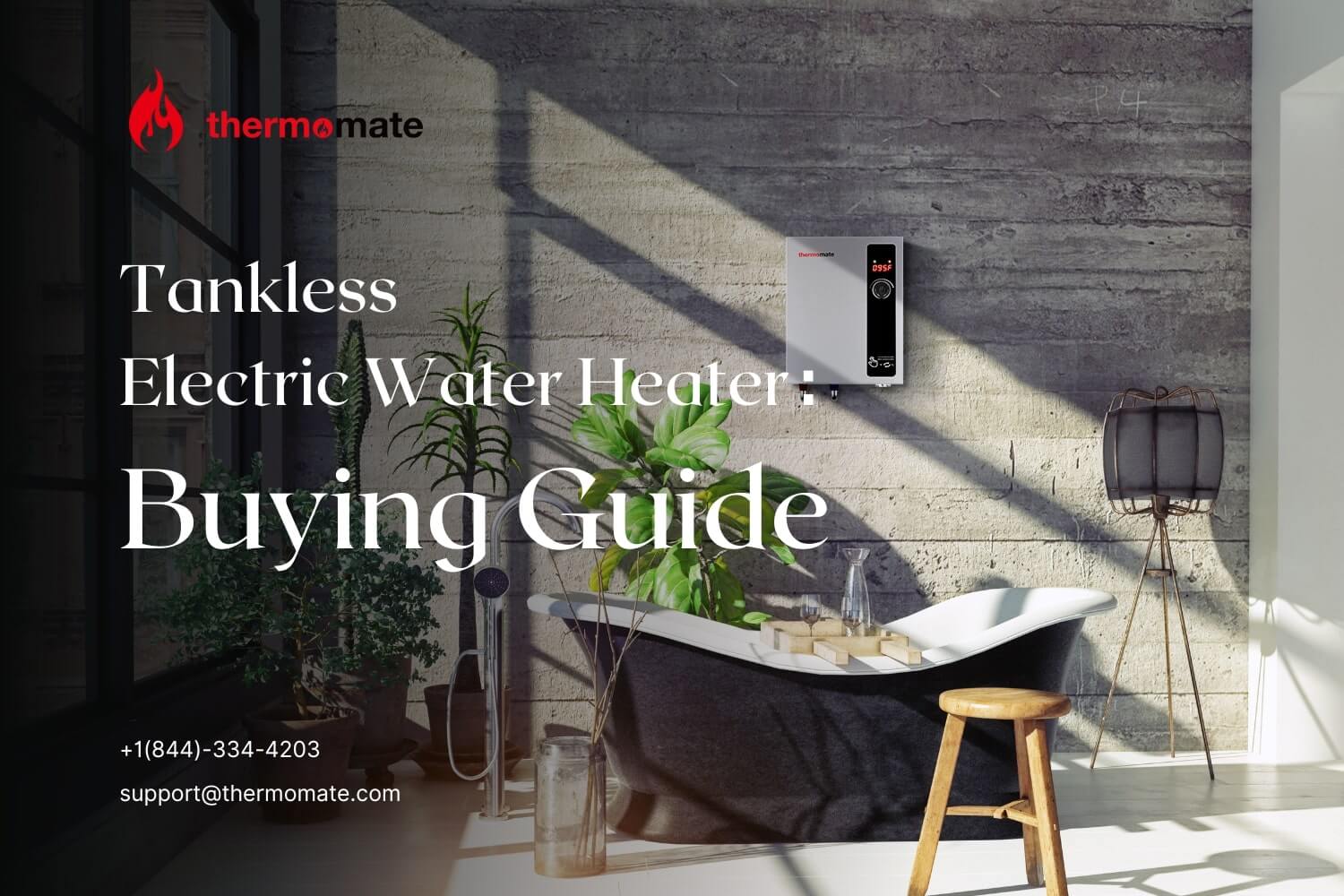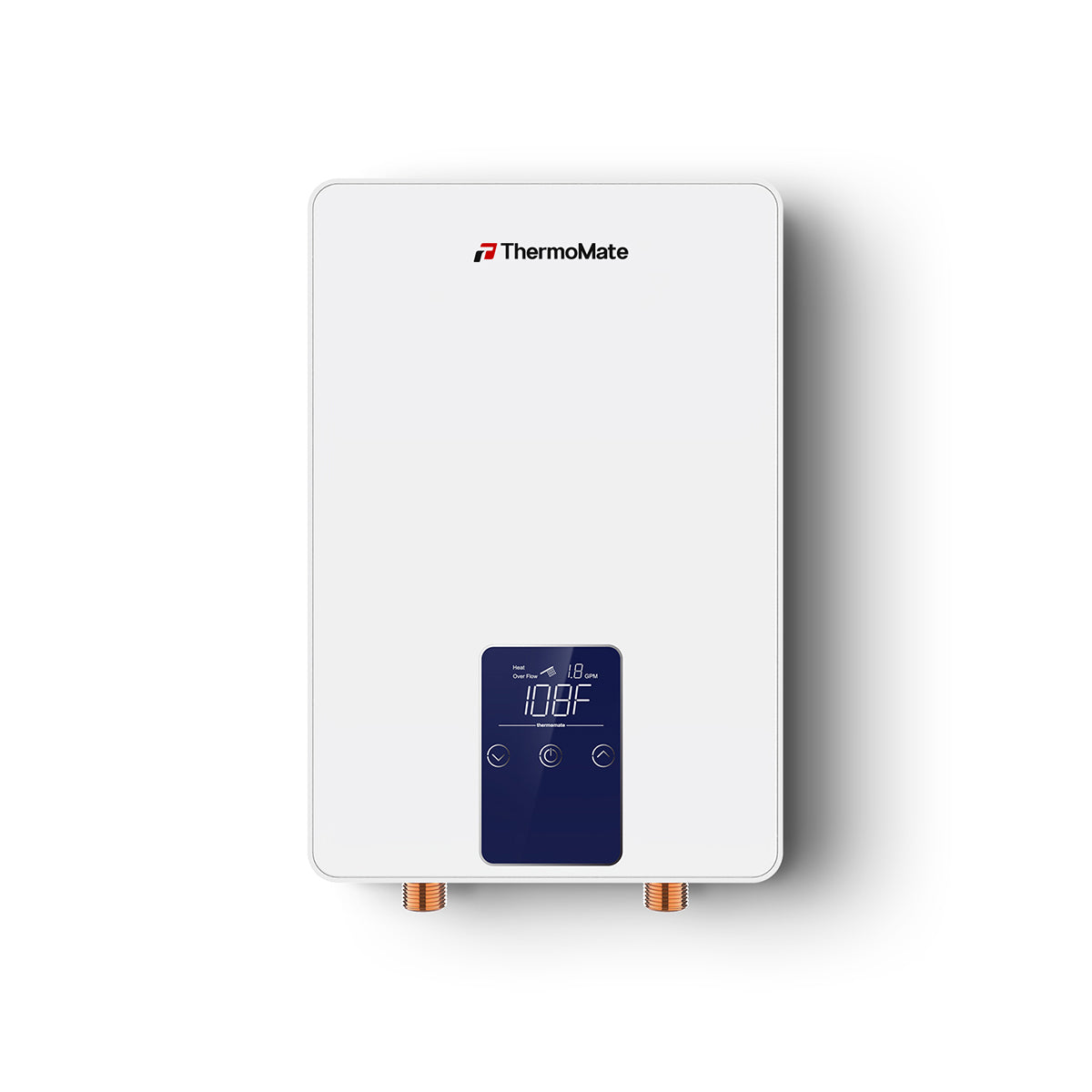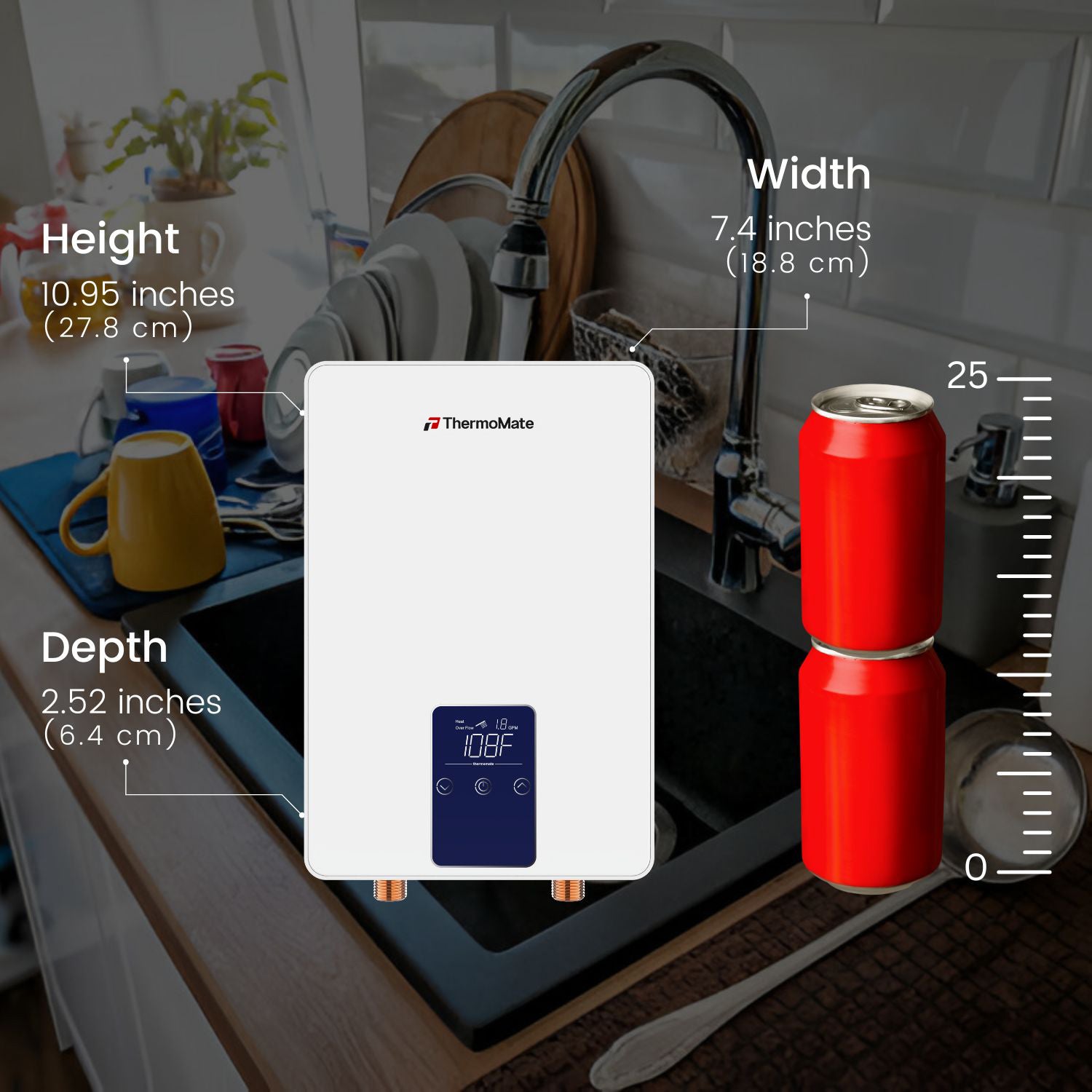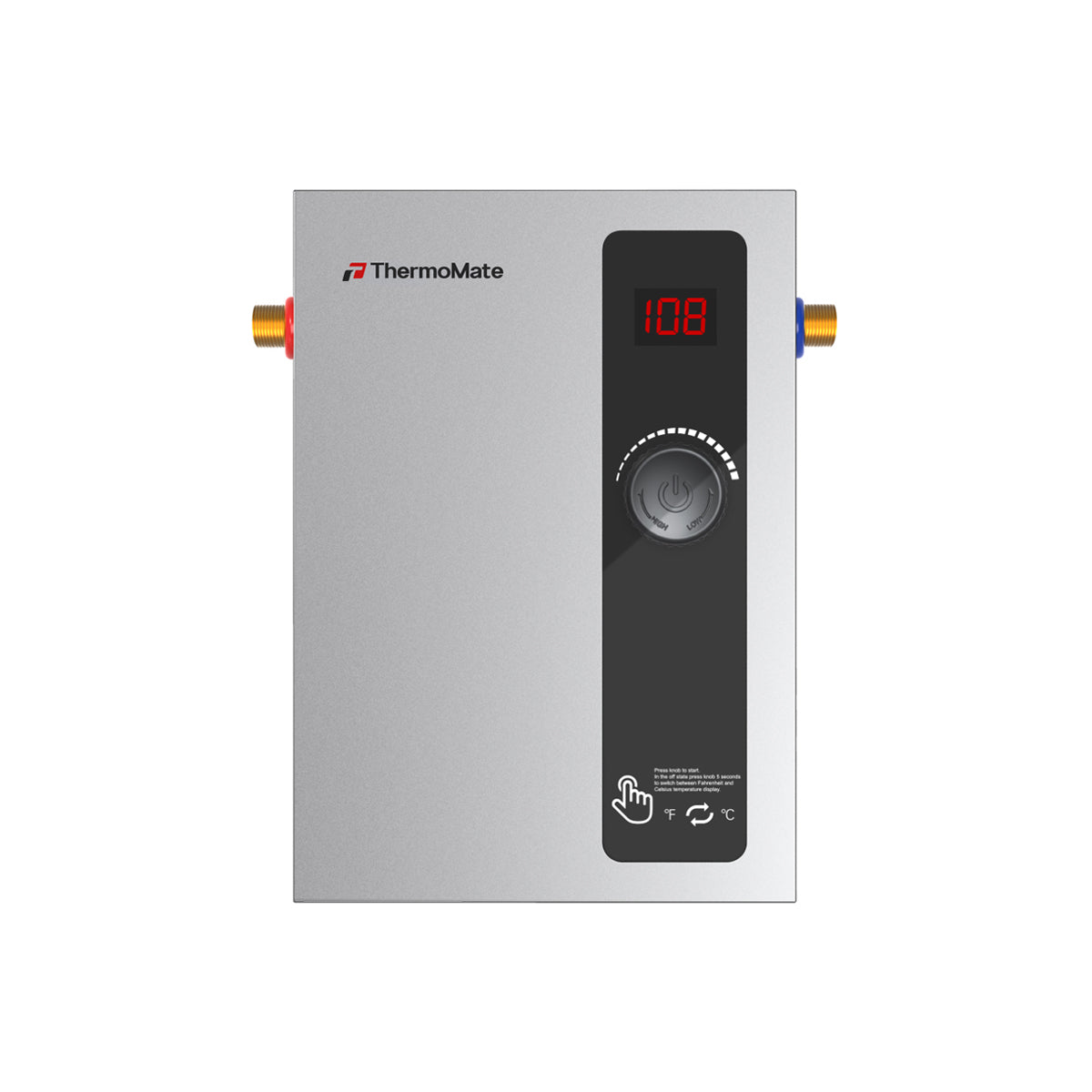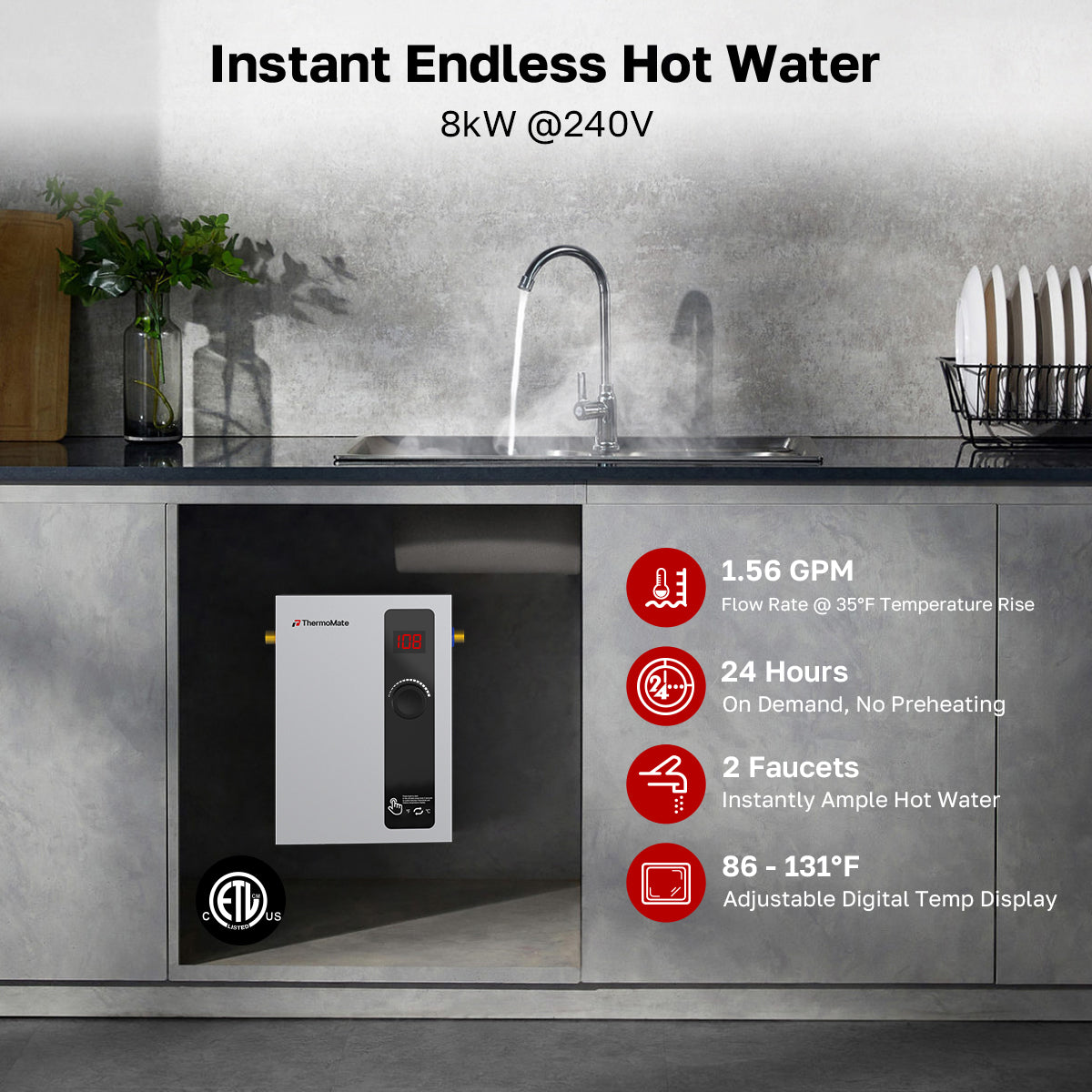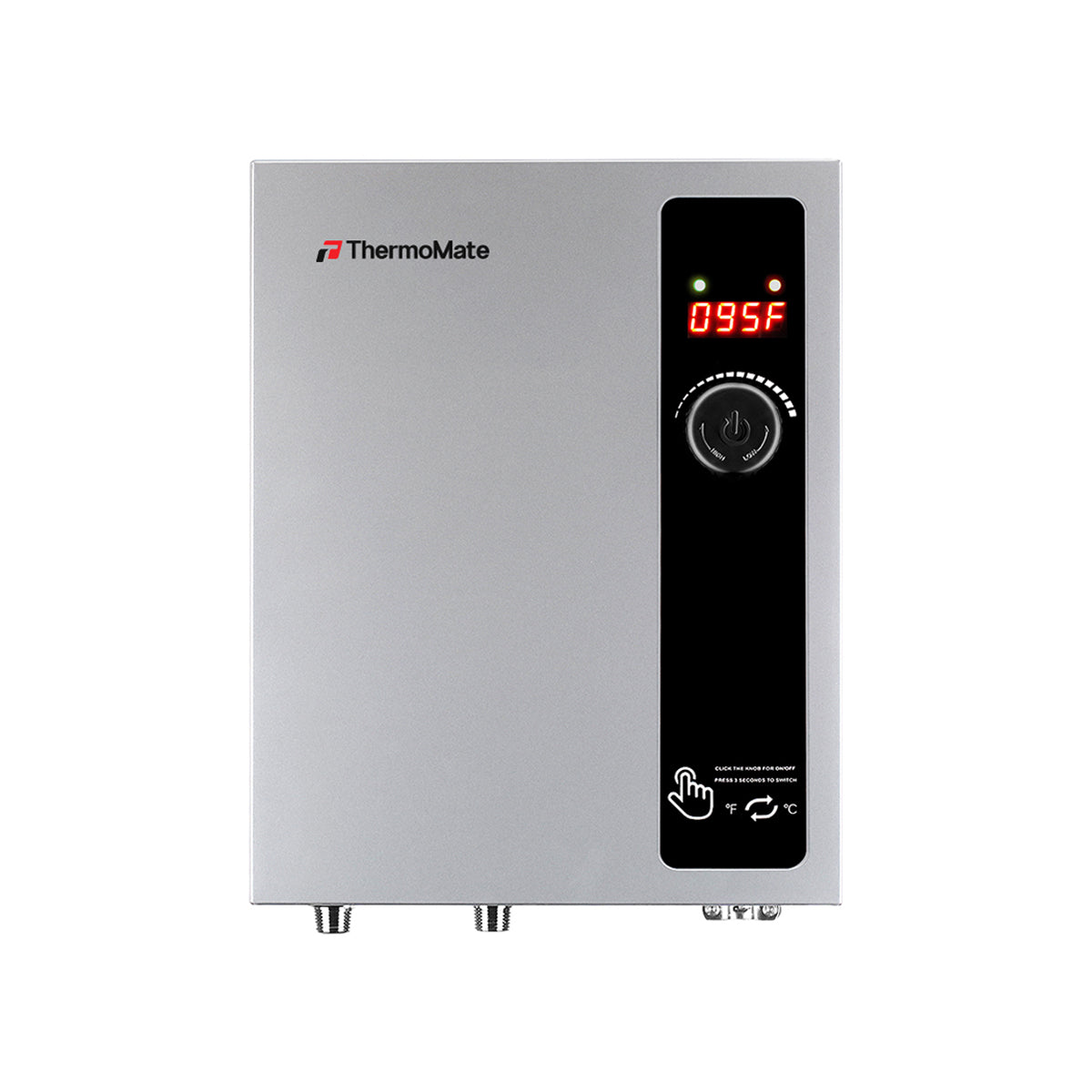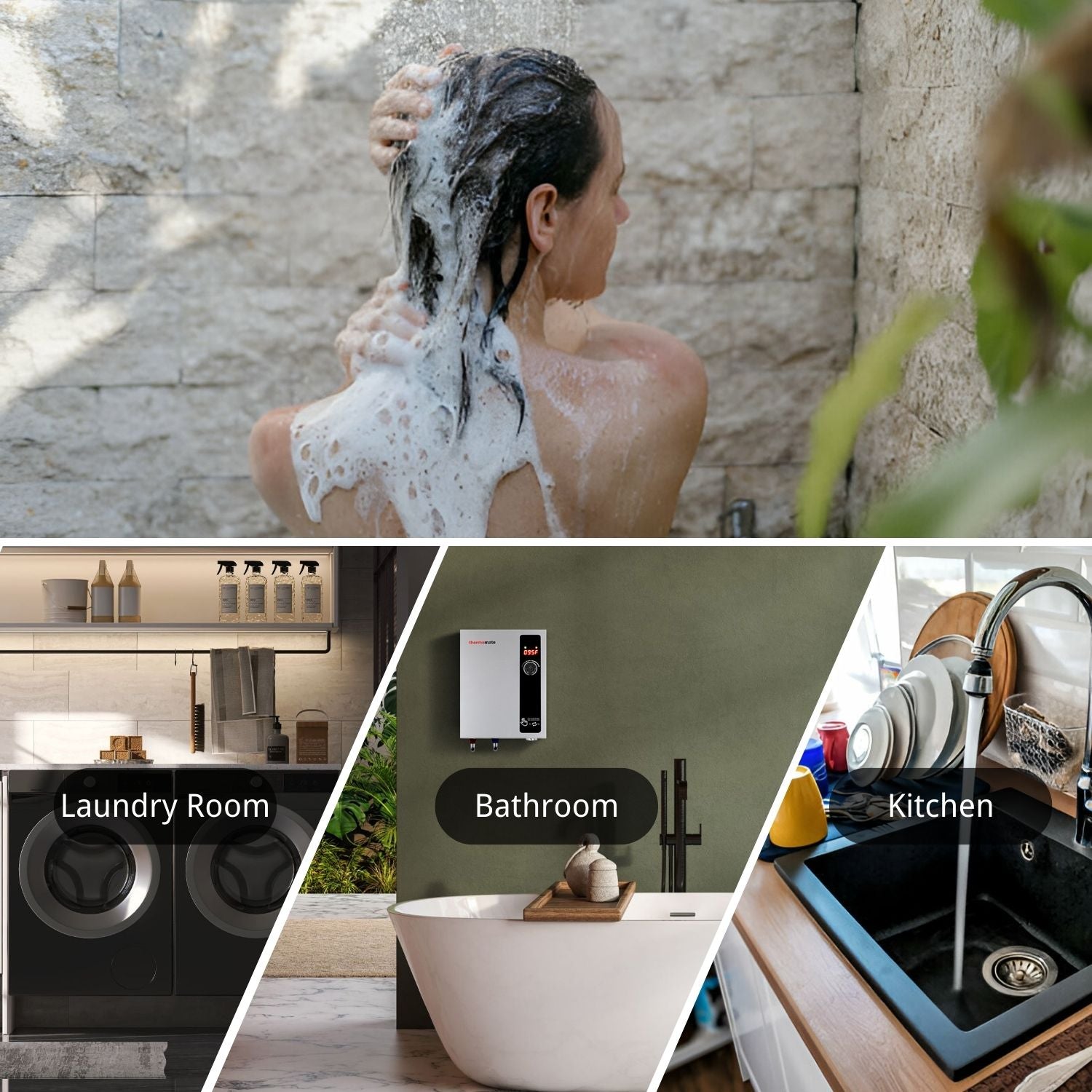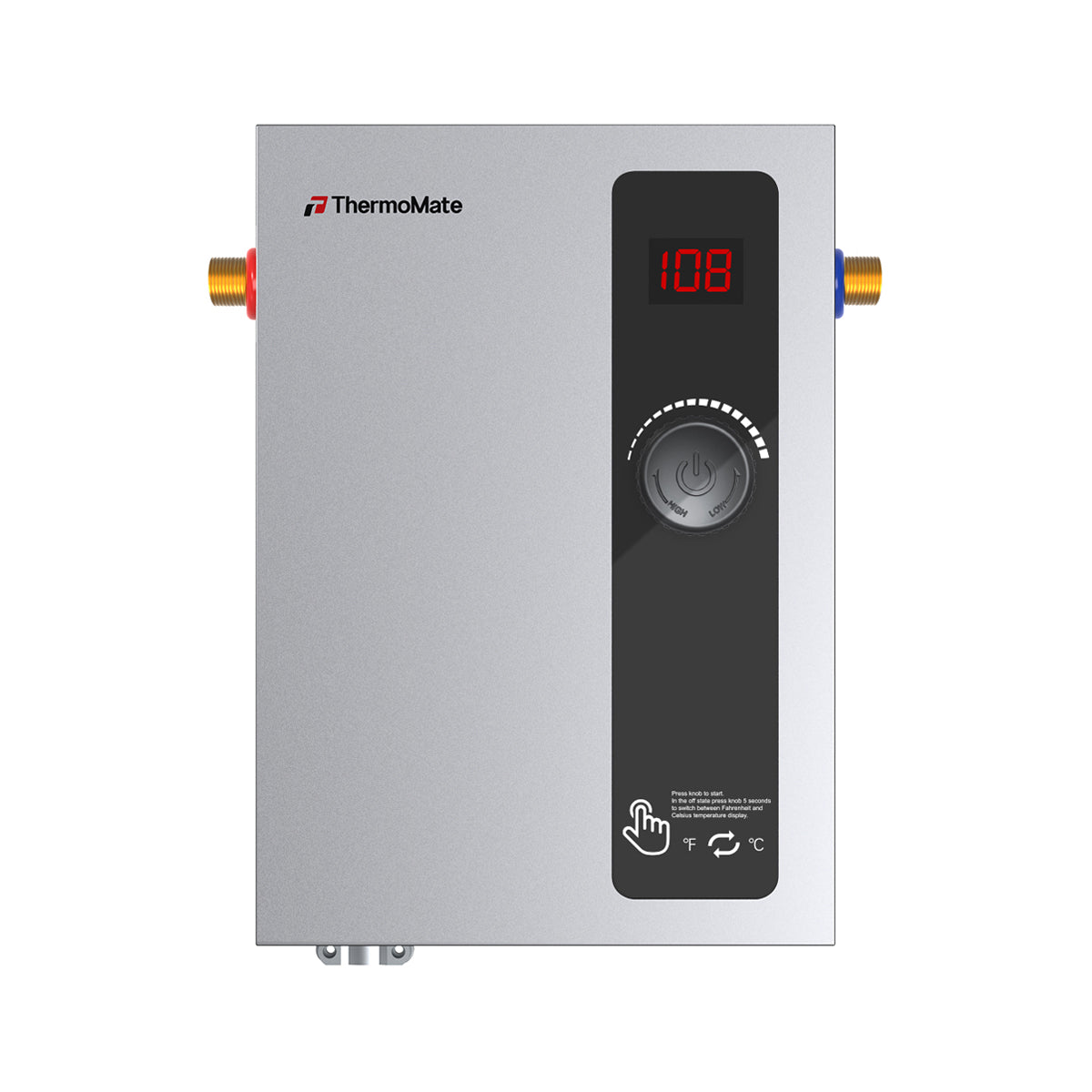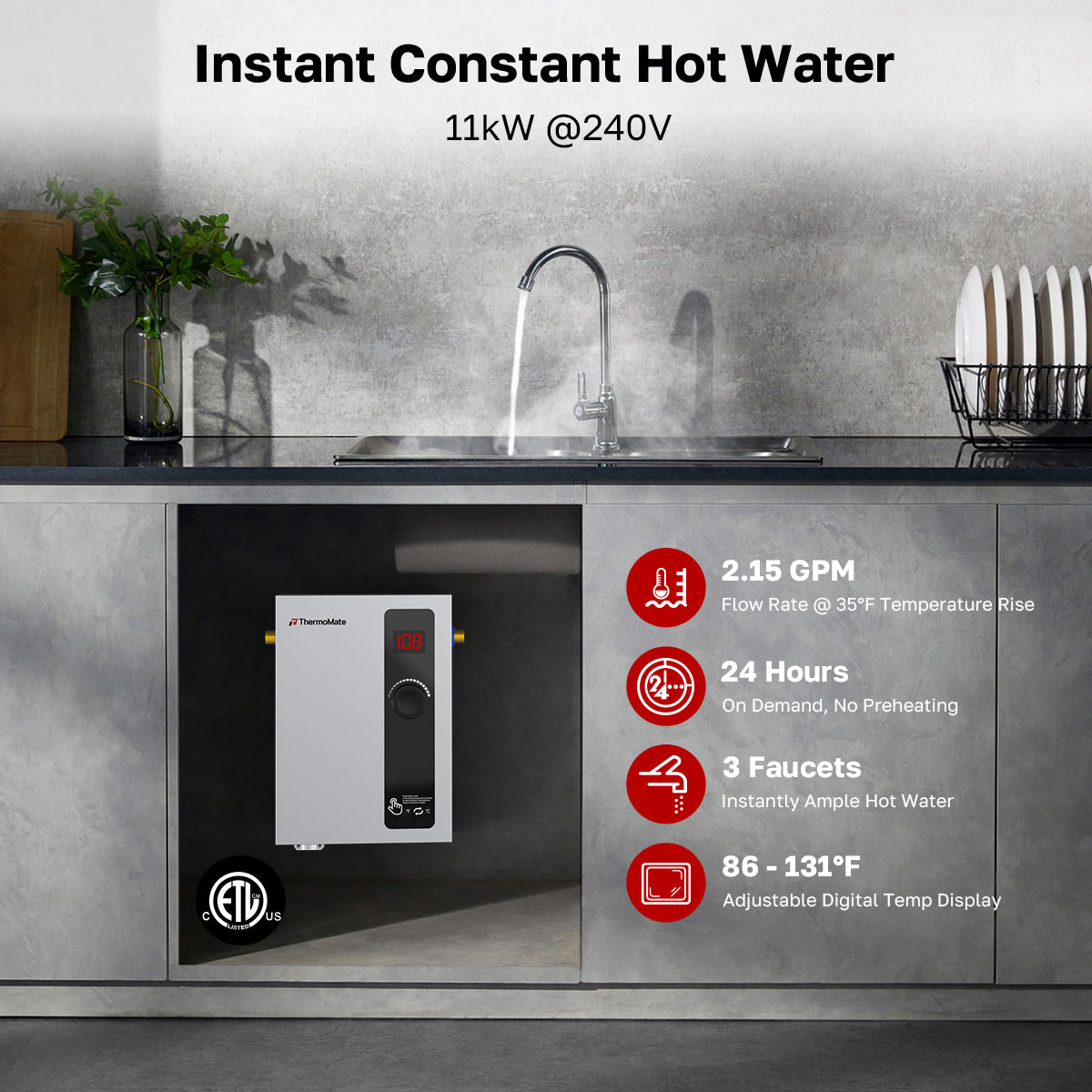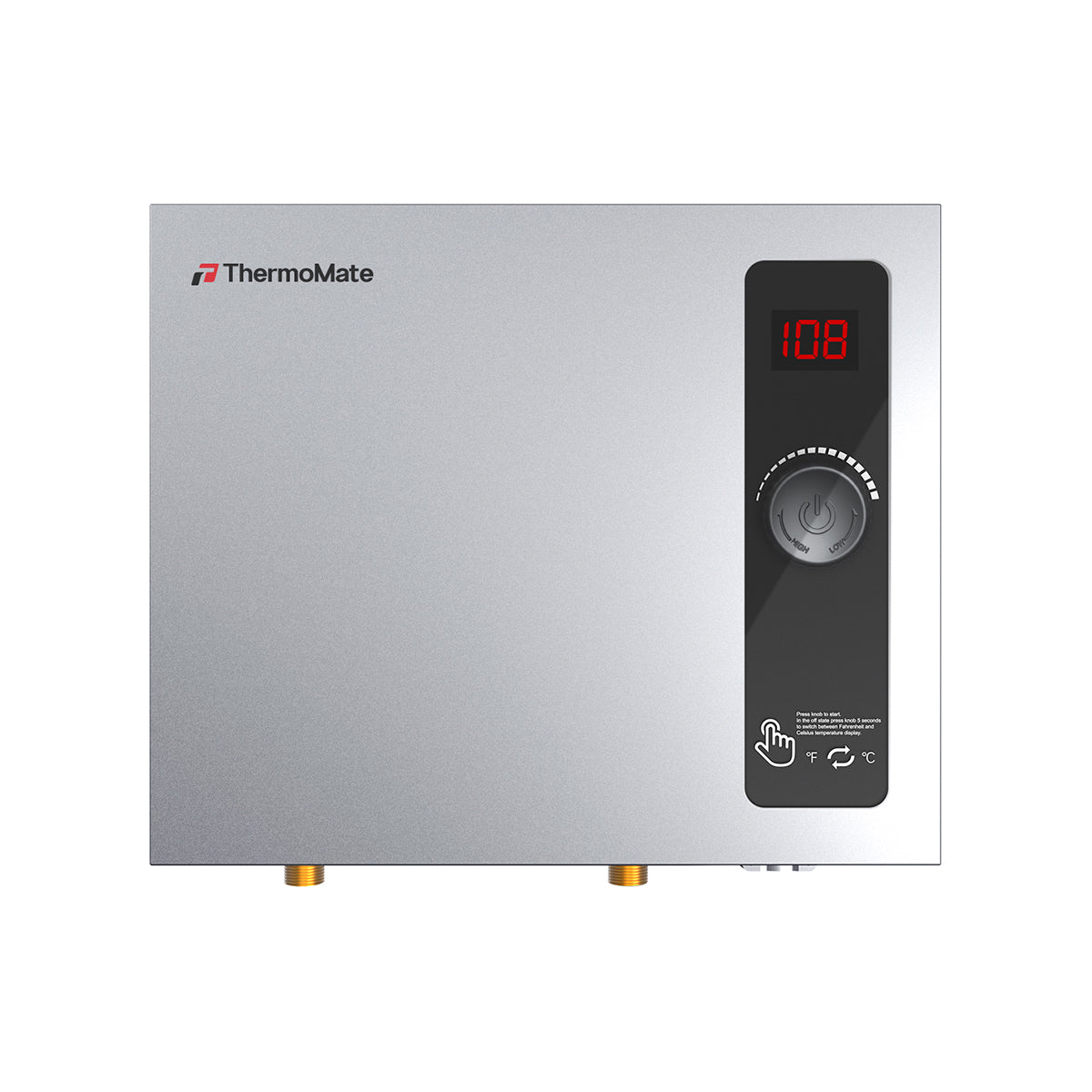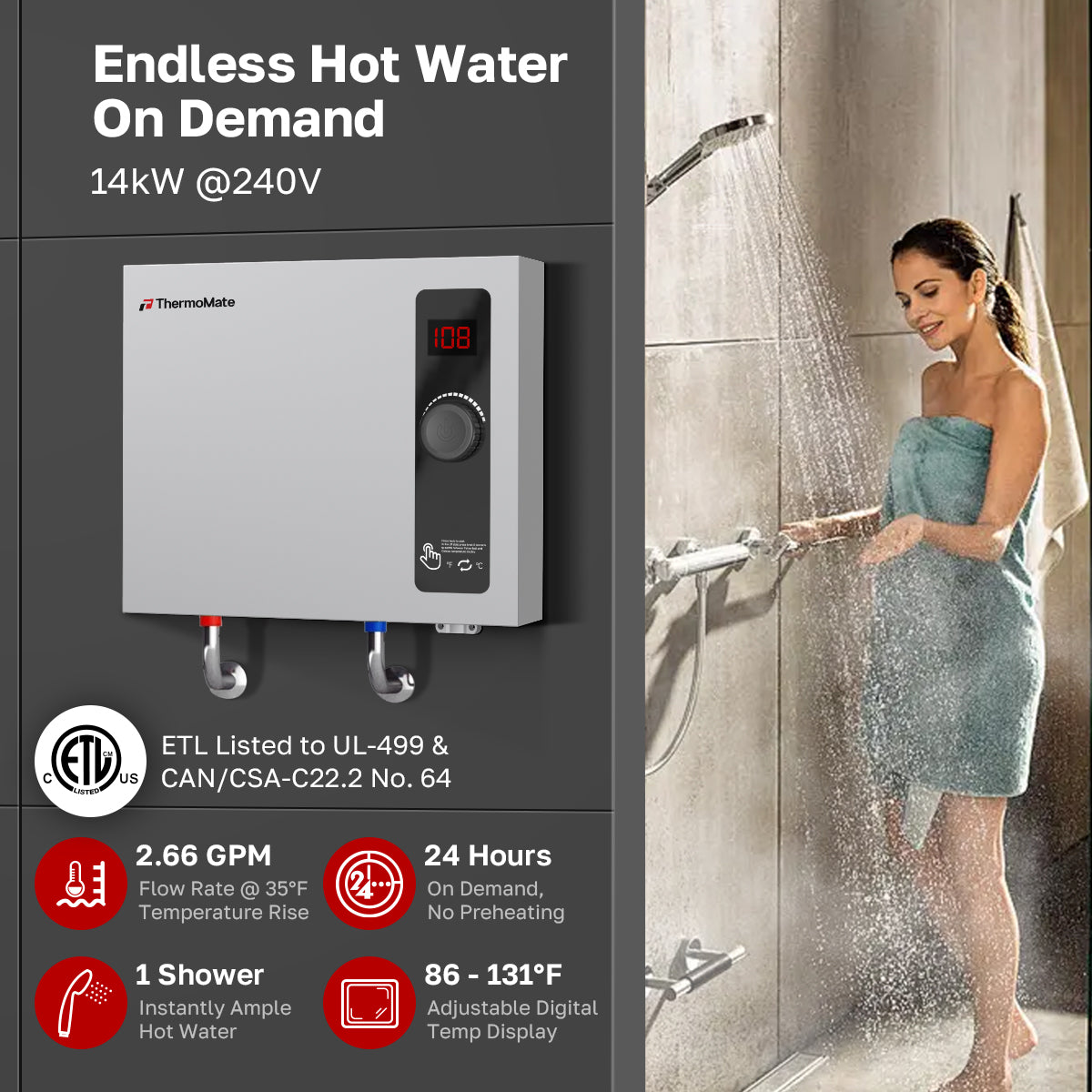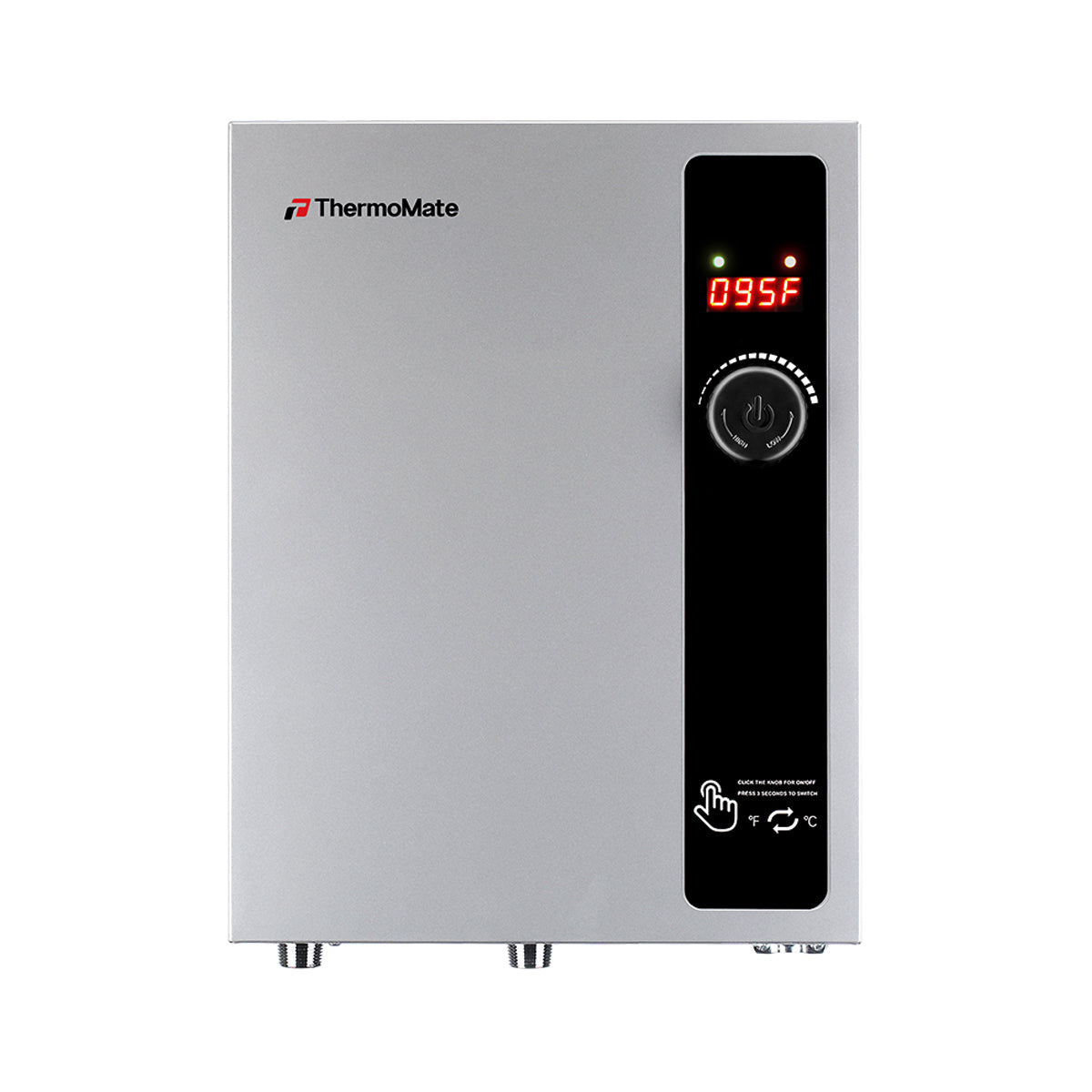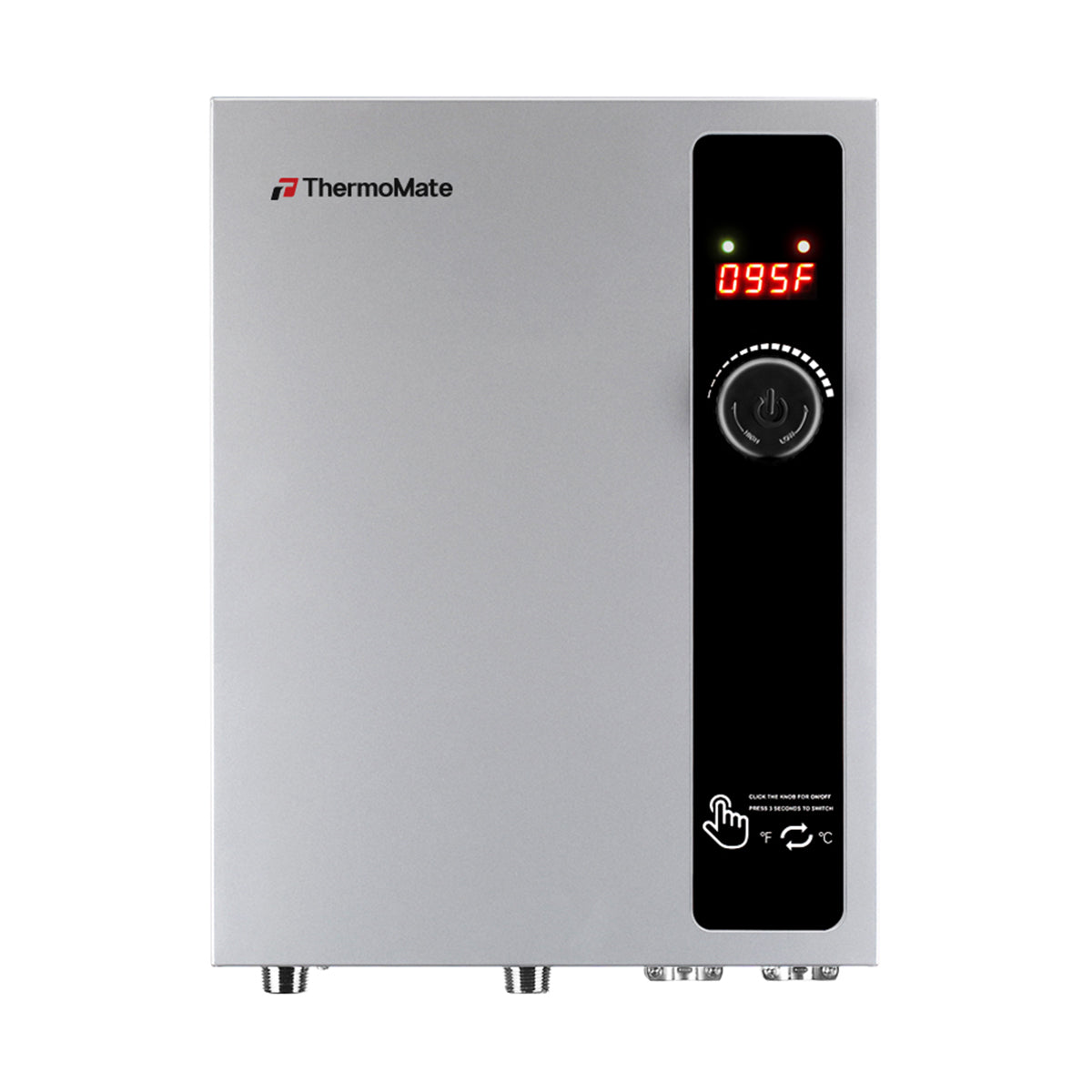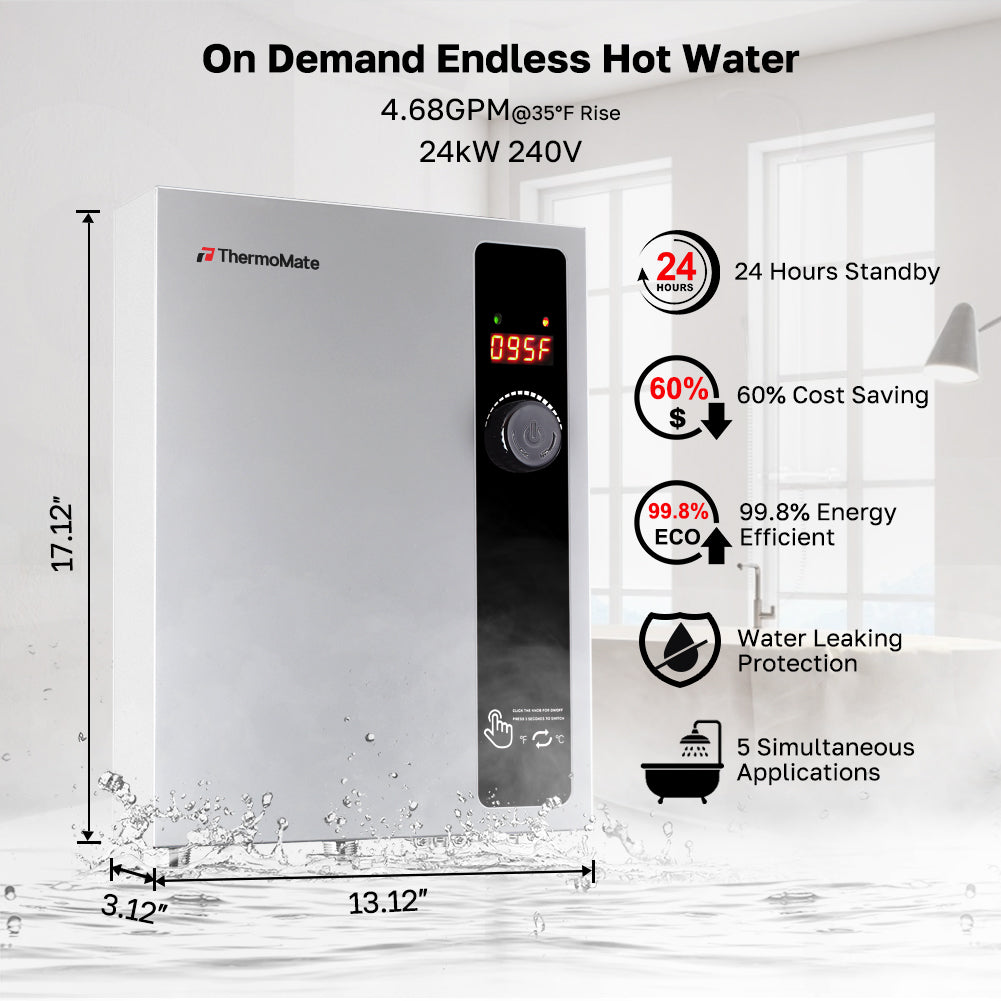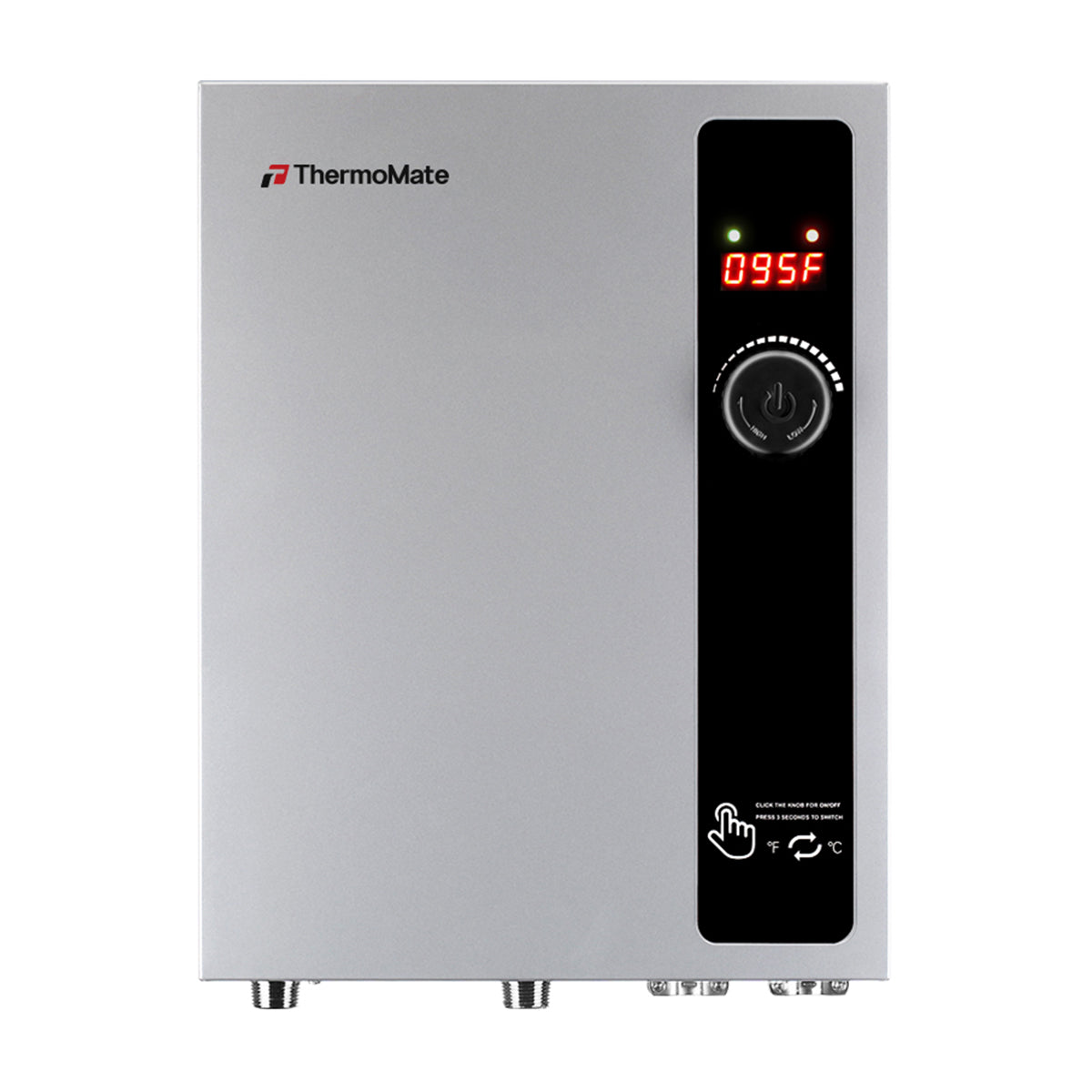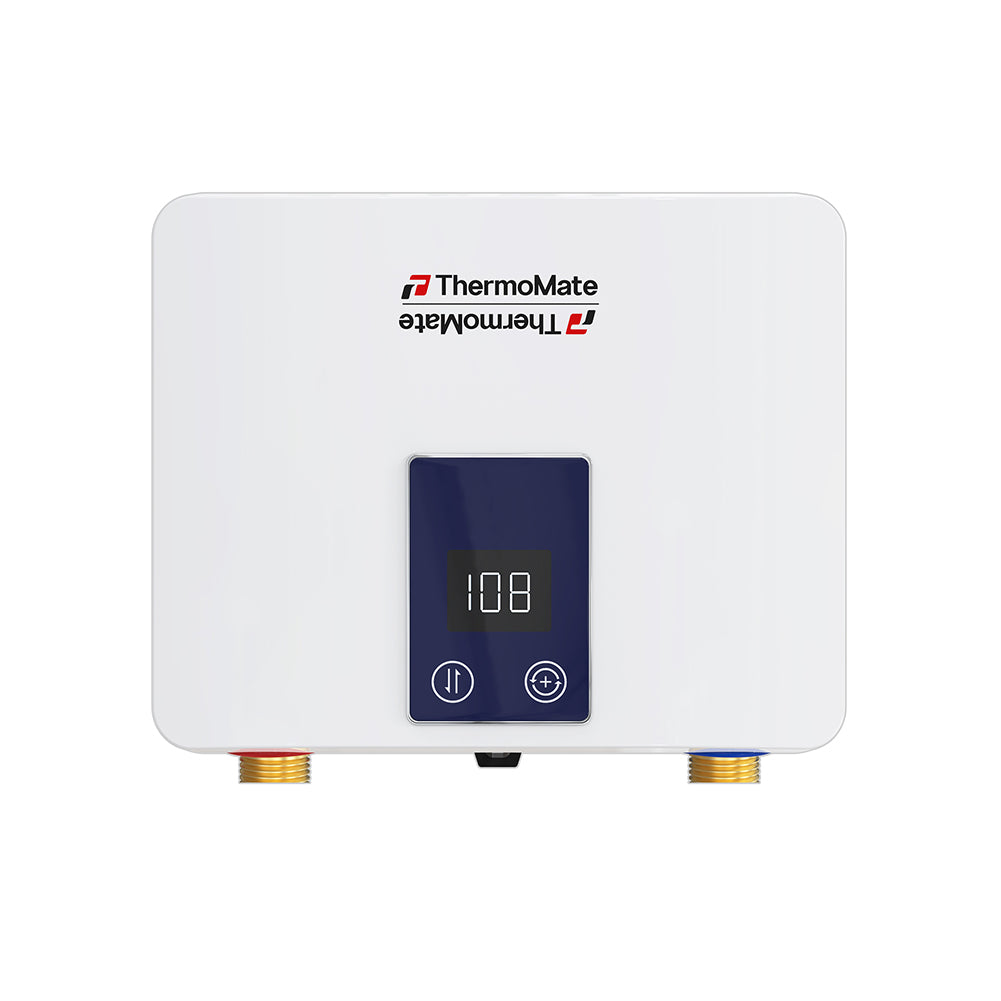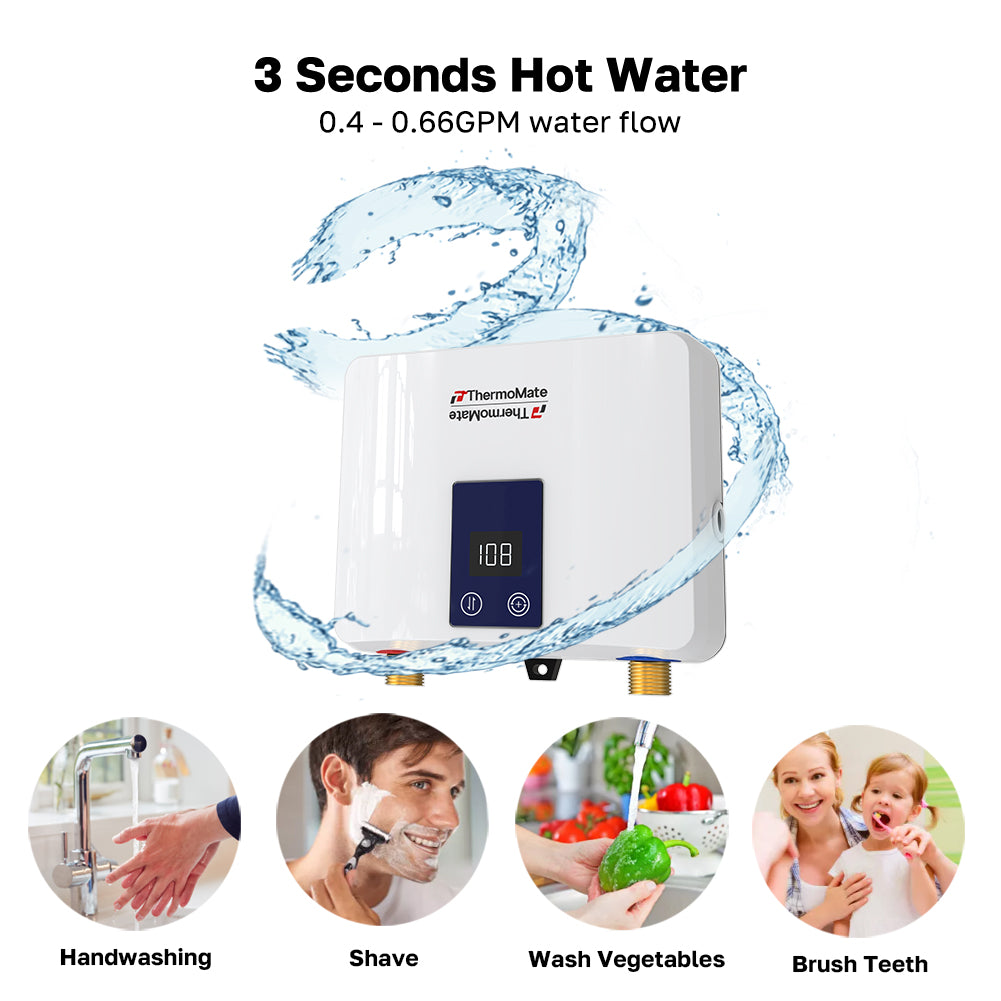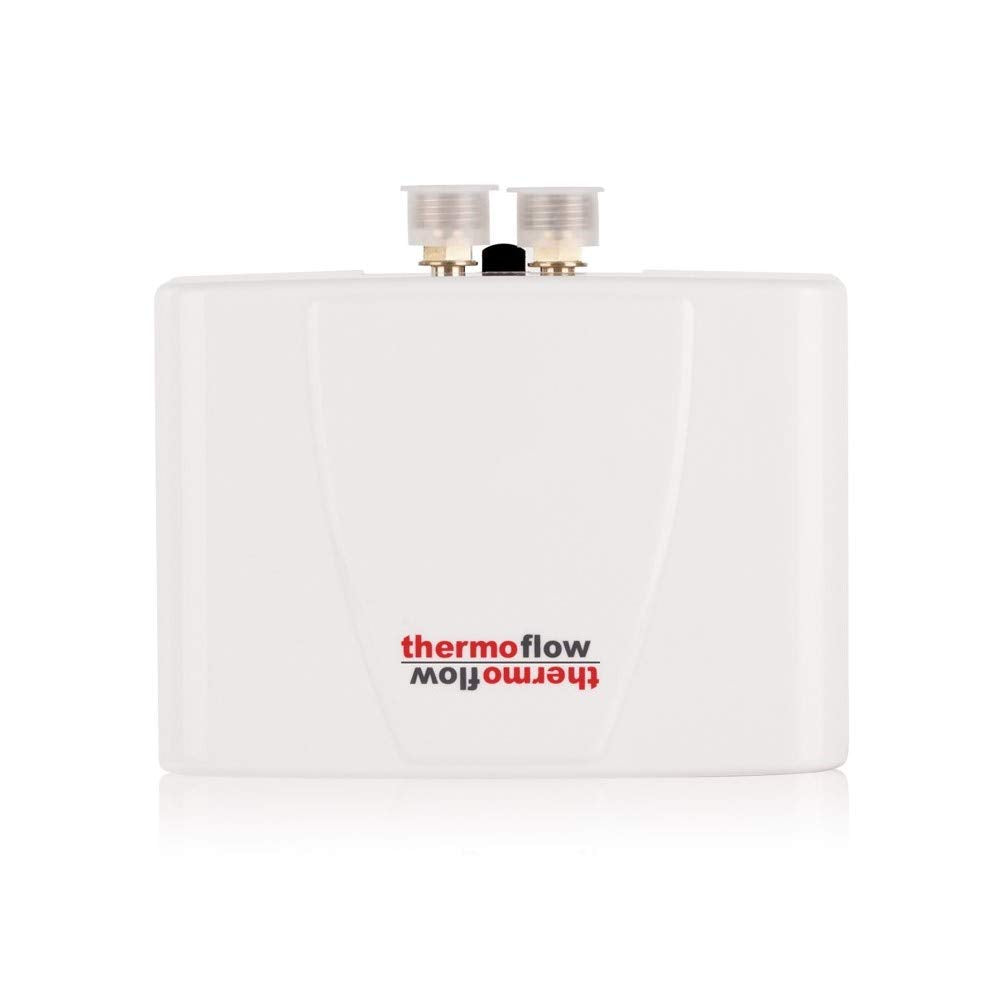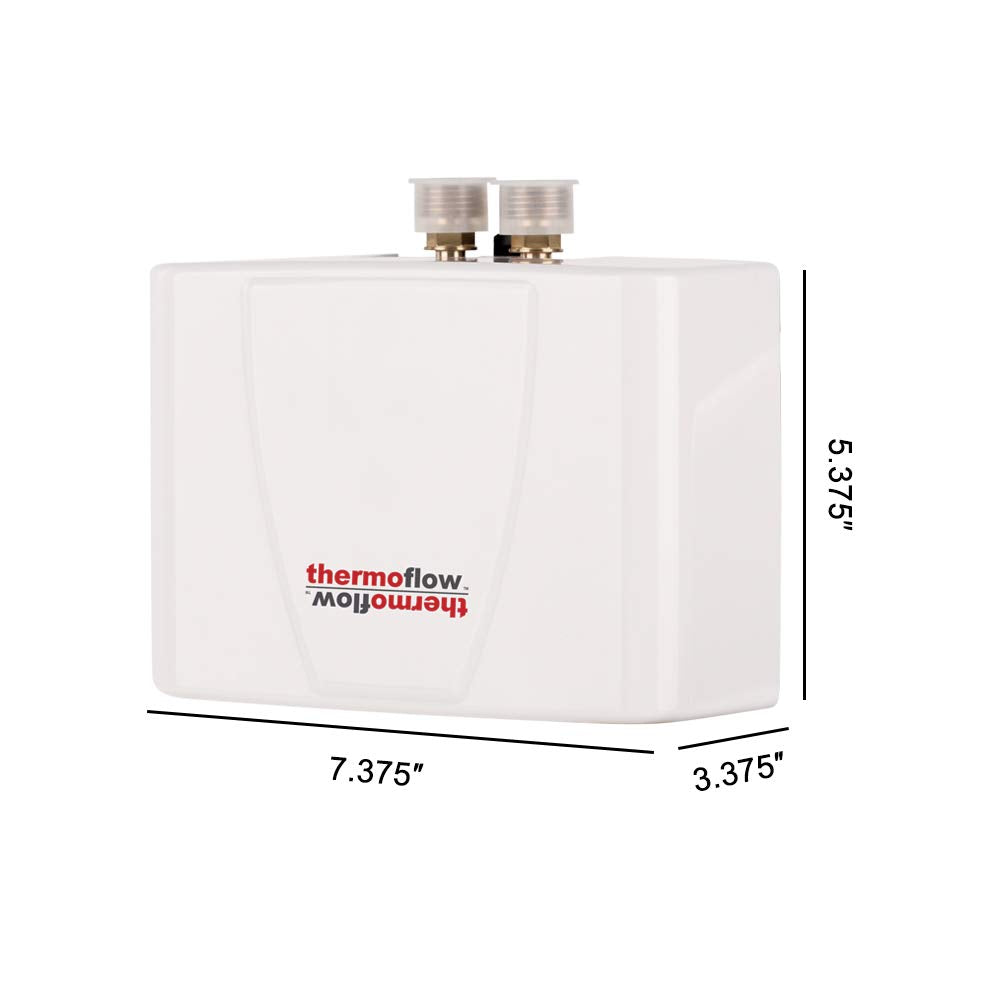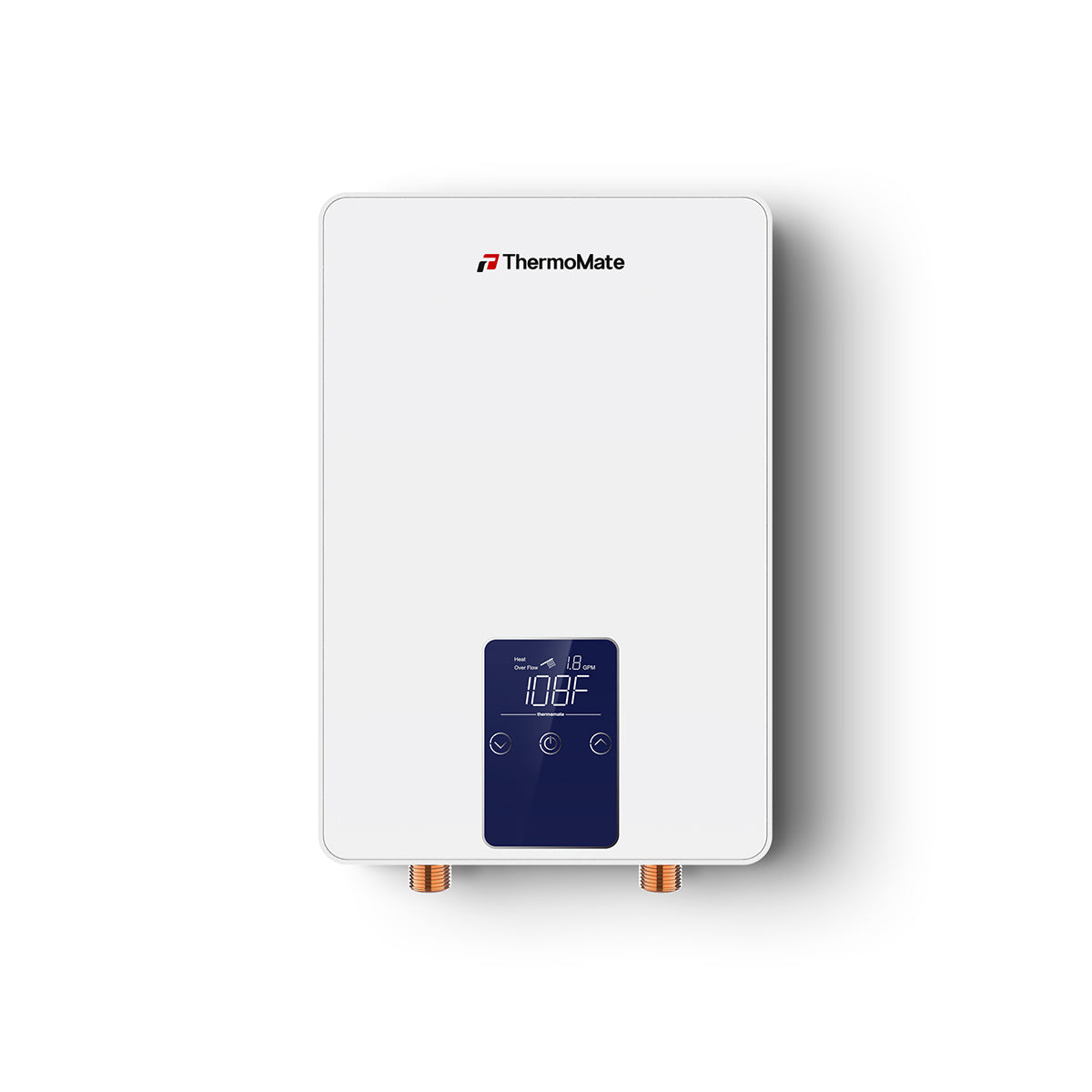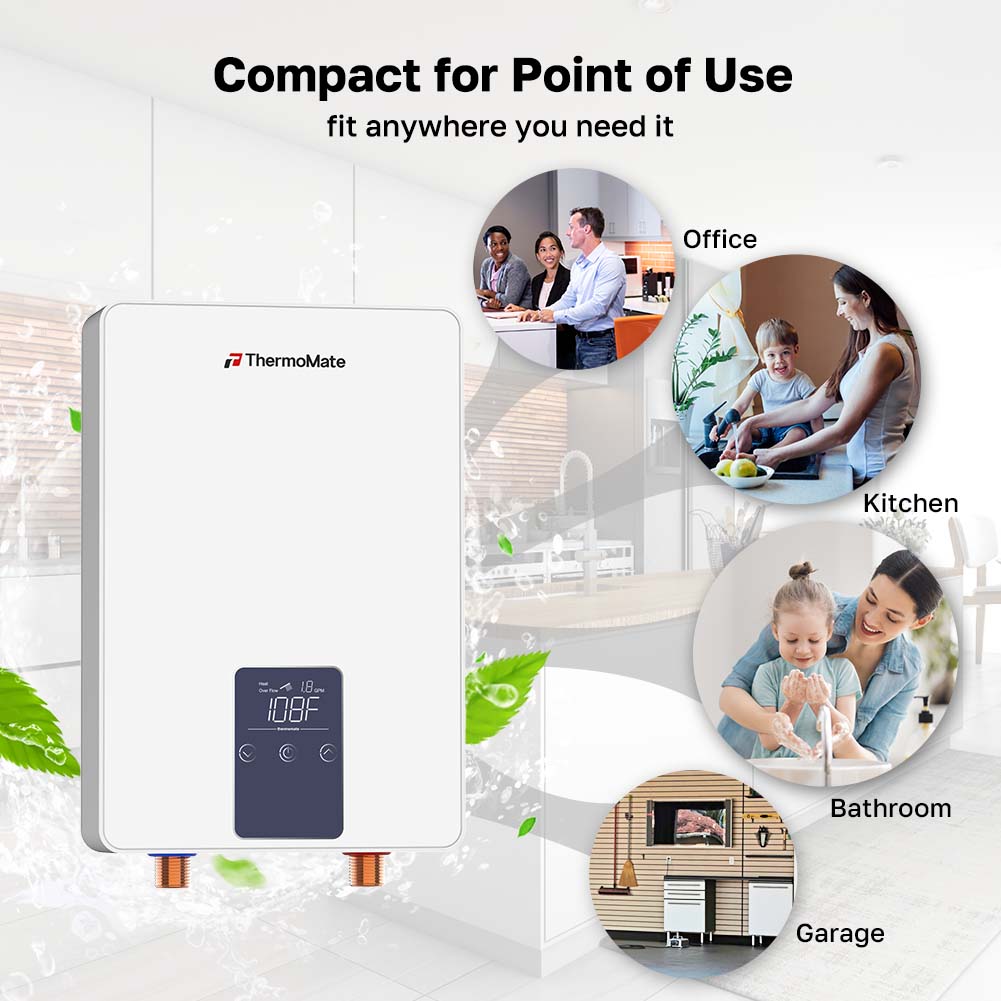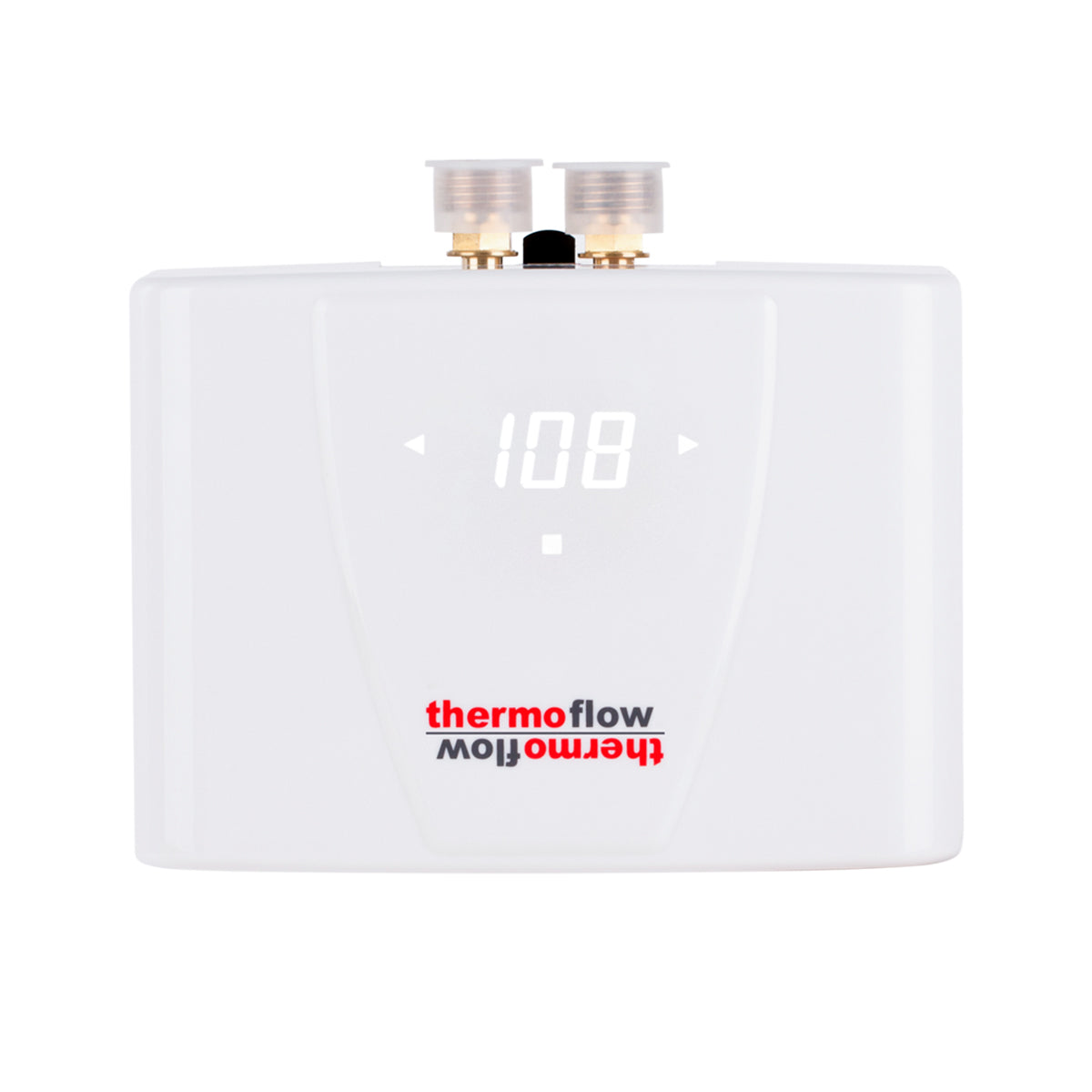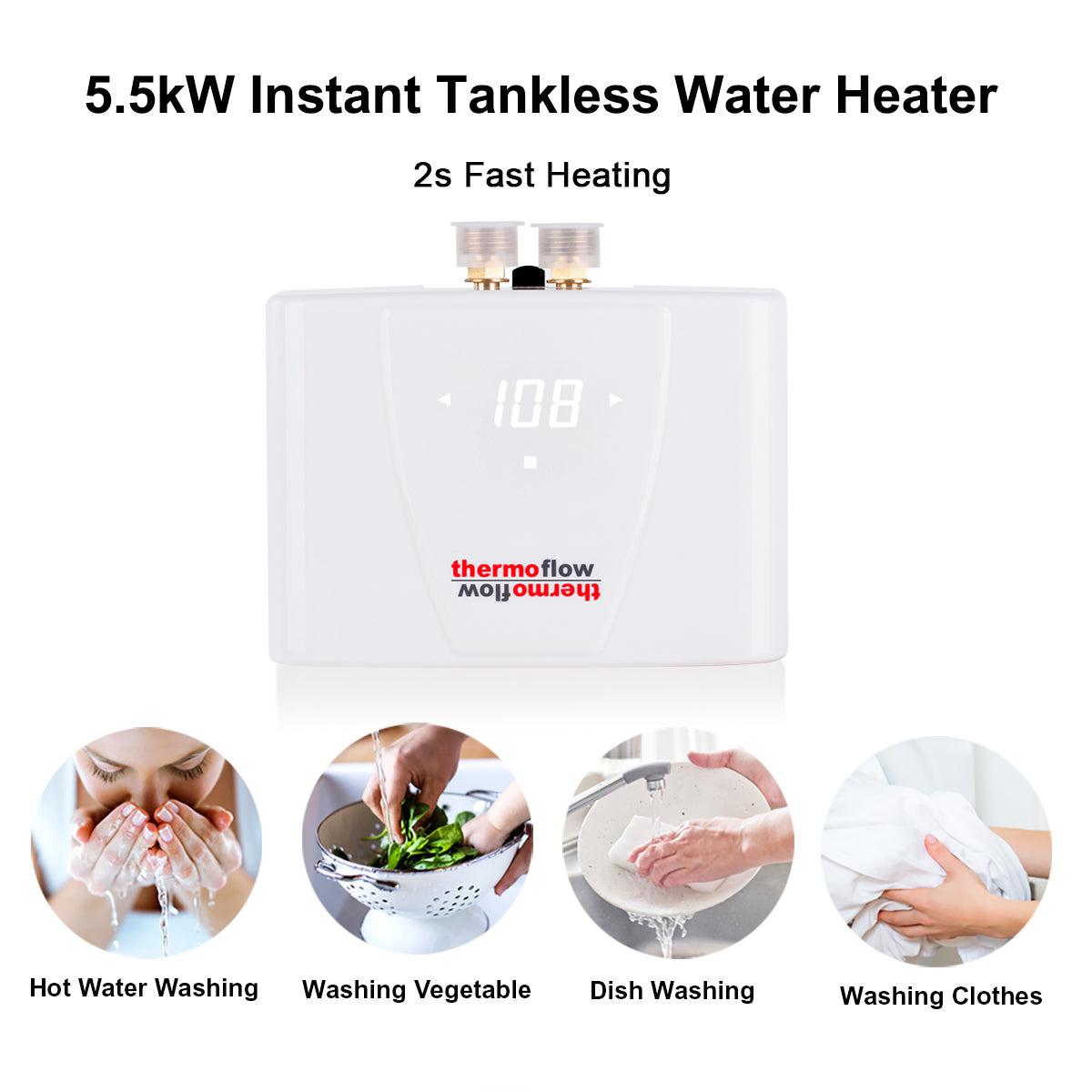When considering an upgrade to your home's hot water system, a tankless electric water heater is a modern solution that offers continuous hot water on demand. Before making the switch, it's important to understand not only how these devices work but also the various factors that can influence their performance and suitability for your home. This article will guide you through the essentials of tankless electric water heaters, from understanding their mechanics to evaluating your household needs, installation requirements, cost implications, model selection, and environmental impact. Armed with this knowledge, you'll be well-equipped to make an informed decision on whether a tankless electric water heater is the right investment for your home.
Key Takeaways
- Tankless electric water heaters provide hot water on demand and can offer significant energy savings over traditional tank-style heaters, but they require careful consideration of your home's hot water needs and electrical capacity.
- Assessing your household's hot water demand and ensuring compatibility with your home's electrical system are critical steps in determining the appropriate size and power of the unit you need.
- Installation of a tankless electric water heater can be complex, often requiring professional assistance, adherence to local codes, and proper location selection to ensure optimal performance and safety.
- While the upfront costs of tankless electric water heaters are typically higher than those of traditional heaters, they can lead to long-term savings on utility bills due to higher energy efficiency, as well as potential maintenance and durability benefits.
- Choosing the right model involves considering brand reputation, customer support, warranty coverage, and any additional features or technologies that can enhance the unit's performance and sustainability.
Understanding Tankless Electric Water Heaters
The Basics of How They Work
Tankless electric water heaters, also known as on-demand or instant water heaters, provide hot water only as it is needed. Unlike traditional water heaters with a storage tank, these systems heat water directly without the use of a storage tank. When a hot water tap is turned on, cold water travels through a pipe into the unit, and an electric element heats the water.
Efficiency is a key feature of tankless water heaters. Because they heat water on demand, they don't produce the standby energy losses associated with storage water heaters, which can save you money. Here's a simple breakdown of the operation process:
- Cold water enters the heater when a hot water tap is opened.
- The water flow sensor detects the water flow.
- An electric element heats the water as it passes over it.
- Hot water is delivered to the tap without delay.
Tip: To ensure optimal performance, it's important to choose a unit with the right power rating for your home's needs. An undersized heater may lead to lukewarm water during high demand.
Advantages Over Traditional Water Heaters
Tankless electric water heaters offer several advantages that make them an attractive option for many homeowners. One of the most significant benefits is their energy efficiency. Unlike traditional water heaters that keep a large tank of water heated at all times, tankless models heat water on demand, which can lead to substantial energy savings.
Instantaneous hot water is another key advantage. With a tankless system, the days of running out of hot water during back-to-back showers are gone. These systems provide a continuous supply, ensuring that hot water is always available when you need it.

Here's a quick look at some of the benefits:
- Increased energy efficiency
- Endless supply of hot water
- Space savings due to compact size
- Longer lifespan compared to tank models
- Reduced risk of water damage from tank leaks
Tip: When considering a tankless electric water heater, remember that the initial investment may be higher, but the long-term savings on energy bills can be significant.
Potential Limitations and Considerations
While tankless electric water heaters offer numerous benefits, there are some potential limitations and considerations to keep in mind. One of the primary concerns is the initial cost, which can be significantly higher than traditional water heaters. Additionally, the electrical requirements for these units can be substantial, necessitating an upgrade to your home's electrical system in some cases.
Installation complexity is another factor to consider. Unlike traditional units, tankless systems often require professional installation to ensure proper operation and adherence to safety standards. Moreover, the performance of tankless water heaters can be affected by the incoming water temperature, which may result in variations in output temperature during extreme weather conditions.
Tip: Before purchasing a tankless electric water heater, evaluate the readiness of your home's electrical infrastructure to handle the increased load and consider the potential need for additional upgrades.
Here's a quick list of considerations:
- High upfront costs
- Electrical system compatibility
- Professional installation requirements
- Sensitivity to incoming water temperature
- Limited flow rate compared to traditional systems
By carefully weighing these factors against the benefits, you can make an informed decision about whether a tankless electric water heater is the right choice for your home.
Evaluating Your Household Needs
Assessing Hot Water Demand
Before investing in a tankless electric water heater, it's crucial to accurately assess your household's hot water demand. This ensures that the unit you purchase can handle the peak usage without running out of hot water during critical times. Start by listing the hot water appliances and fixtures you use simultaneously during peak times, such as showers, dishwashers, or washing machines.
To help you estimate your needs, consider the average flow rates (gallons per minute, GPM) for common fixtures:
| Fixture | Average Flow Rate (GPM) |
|---|---|
| Shower | 1.5 - 3.0 |
| Bathroom Faucet | 0.5 - 1.5 |
| Kitchen Faucet | 1.0 - 2.2 |
| Dishwasher | 1.0 - 2.5 |
| Washing Machine | 1.5 - 3.0 |
Add up the flow rates of the fixtures you expect to use at the same time to get a rough estimate of your peak demand. Remember, it's better to err on the side of a slightly larger unit than to risk undersizing.
Tip: When calculating hot water demand, consider future changes such as family size or additional appliances that may increase usage.
Calculating the Required Size and Power
Determining the right size and power for a tankless electric water heater is crucial for efficient operation and ensuring a constant supply of hot water. The size of the unit is typically measured in gallons per minute (GPM) and should be based on the number of fixtures in your home that will use hot water simultaneously. To calculate the required GPM, add up the flow rates of all fixtures that could be in use at the same time.
For example, if you have a shower with a flow rate of 2.5 GPM and a kitchen faucet with a flow rate of 1.5 GPM, and both could be in use simultaneously, you would need a water heater that can handle at least 4 GPM. Additionally, consider the temperature rise needed based on your incoming water temperature and desired output temperature.
Tip: A higher GPM rating means the heater can supply more hot water at once, but it also means more power consumption. Choose a model that balances your hot water needs with energy efficiency.
Here's a simple table to help you estimate the GPM requirements based on common household fixtures:
| Fixture | Average Flow Rate (GPM) |
|---|---|
| Shower | 1.5 - 2.5 |
| Faucet | 0.5 - 1.5 |
| Dishwasher | 1 - 2.5 |
| Washing Machine | 1.5 - 3 |
Remember, the bold figure for your household will depend on the specific fixtures you have and how you use them.
Compatibility with Your Home's Electrical System
Before investing in a tankless electric water heater, it's crucial to ensure that your home's electrical system can handle the additional load. Tankless systems typically require a significant amount of power to instantly heat water, and this can put a strain on older or inadequate electrical systems.
To determine if your system is compatible, you should consider the following:
- Amperage: Check your main electrical panel to see if you have enough amperage available to support a tankless water heater. Most units require a dedicated circuit with a specific amperage rating.
- Voltage: Ensure that your home's voltage matches the requirements of the tankless water heater. Common voltages for these units are 120V, 240V, or 277V.
- Circuit Breakers: You may need to upgrade your circuit breakers to accommodate the higher power draw.
Tip: Always consult with a licensed electrician to assess your home's electrical capacity and to make any necessary upgrades before installation.
Installation Considerations
Professional vs. DIY Installation
When it comes to installing a tankless electric water heater, homeowners are faced with the decision of whether to hire a professional or attempt a do-it-yourself (DIY) installation. While a DIY approach may seem cost-effective, it is important to consider the complexity of the task and the potential risks involved.
Professional installation ensures that your water heater is set up correctly and complies with local codes and regulations. Certified technicians can also provide valuable insights into the best practices for installation and future maintenance. On the other hand, DIY installation can be rewarding and less expensive, but it requires a solid understanding of electrical systems and plumbing.
Tip: Always consult the manufacturer's installation guide and local building codes before attempting a DIY installation.
Here are some factors to consider when deciding between professional and DIY installation:
- Safety: Working with electricity and water poses serious risks.
- Tools and Equipment: Specialized tools may be required for proper installation.
- Time Commitment: A DIY project can take significantly longer without professional experience.
- Warranty: Some manufacturers may void the warranty if the unit is not professionally installed.
Required Permits and Regulations
Before installing a tankless electric water heater, it's crucial to understand the local permits and regulations that govern such installations. These requirements can vary significantly from one municipality to another, and non-compliance can lead to fines or even the need to remove the system.
- Check with your local building department to determine the specific permits required for your area.
- Ensure that the installation meets local building codes and standards, which may dictate everything from the unit's placement to the type of wiring used.
- Some areas may require inspections both before and after installation to ensure safety and code compliance.
Always consult a professional if you are unsure about the permitting process or local regulations. Their expertise can help you navigate the complexities and avoid potential setbacks.
Selecting the Right Location
Choosing the right location for your tankless electric water heater is crucial for optimal performance and ease of access. When selecting a location, consider the proximity to the main points of use. Closer installation to fixtures like showers and sinks can reduce the wait time for hot water. Additionally, ensure the chosen area has adequate ventilation, especially for units that require an air intake.
- Ensure there is enough space for installation and maintenance.
- The location should be protected from freezing temperatures to prevent damage.
- Accessibility for future servicing and potential repairs is essential.
Tip: Always consult the manufacturer's installation guide for specific space and ventilation requirements to avoid performance issues or safety hazards.
Remember that the installation environment can affect the longevity and efficiency of your water heater. An indoor setup is generally preferred to shield the unit from harsh weather conditions, but in some climates, an outdoor installation might be suitable. It's important to weigh these factors based on your regional climate and usage patterns.
Cost Analysis
Upfront Costs vs. Long-Term Savings
When considering a tankless electric water heater, it's crucial to weigh the upfront costs against the potential long-term savings. Initially, these units can be more expensive than traditional water heaters due to the cost of the heater itself and the installation. However, tankless models are generally more energy-efficient, which can lead to significant savings on utility bills over time.
Long-term savings are not just about lower monthly bills. Tankless water heaters typically have a longer lifespan than their tanked counterparts, which means you won't need to replace them as often. Here's a simple breakdown of the costs:
- Initial Purchase: Higher than traditional water heaters
- Installation: Can be costly, depending on home compatibility
- Energy Bills: Lower monthly costs due to higher efficiency
- Maintenance: Less frequent, potentially lower costs
- Replacement: Less frequent, saving money over time
Tip: Always consider the total cost of ownership when comparing prices. This includes the purchase price, installation, maintenance, and the cost of energy over the lifespan of the water heater.
Energy Efficiency and Utility Bills
When considering a tankless electric water heater, energy efficiency is a key factor that directly influences your utility bills. These heaters are designed to heat water on demand, which means they don't incur the energy losses associated with keeping a tank of water hot 24/7. As a result, you can expect a more efficient use of electricity and potential cost savings on your energy bills.
To illustrate the potential savings, here's a comparison between a traditional water heater and a tankless model:
| Water Heater Type | Efficiency | Annual Operating Cost |
|---|---|---|
| Traditional Tank | 60% | $500 |
| Tankless | 99% | $250 |
Note: The above figures are for illustrative purposes and will vary based on usage and local utility rates.
It's important to remember that the initial higher cost of a tankless unit may be offset by the long-term savings in utility bills. However, to maximize these savings, ensure that the unit you select is appropriately sized for your household's needs. An oversized unit will not only cost more upfront but can also lead to unnecessary energy consumption.
Tip: Regular maintenance can help maintain the energy efficiency of your water heater, potentially extending its lifespan and enhancing its performance over time.
Maintenance and Durability
When considering a tankless electric water heater, maintenance and durability are crucial factors. These units are generally low-maintenance compared to traditional water heaters, but they are not maintenance-free. Periodic descaling, especially in areas with hard water, is necessary to prevent mineral buildup that can impair efficiency and longevity.
Durability is often reflected in the warranty period offered by the manufacturer, which can range from 5 to 15 years. It's important to follow the manufacturer's guidelines for maintenance to ensure that the warranty remains valid. Here's a brief overview of typical maintenance tasks:
- Inspecting and cleaning the inlet screen filter
- Descaling to remove mineral buildup
- Checking the electrical components for wear and tear
Tip: Always shut off the power supply before performing any maintenance tasks to ensure safety.
Remember, while tankless water heaters are designed for a longer lifespan, their durability can be compromised without proper care. The cost of maintenance should be factored into the overall cost analysis when making your purchase decision.
Selecting the Right Model
Brand Reputation and Reviews
When selecting a tankless electric water heater, the reputation of the brand and the reviews from other customers can be invaluable. Brand reputation is often built over years of consistent product quality and customer service. It's important to research and compare how different brands stand in the market. Look for companies that have a track record of reliability and customer satisfaction.
Customer reviews offer a wealth of information and can provide insights into the real-world performance of water heaters. Pay attention to common themes in reviews, such as ease of use, durability, and responsiveness of customer support. However, be wary of reviews that seem overly biased or inconsistent with the majority.
Tip: Always cross-reference reviews from multiple sources to get a well-rounded understanding of the product.
- Consider the longevity of the brand in the market
- Evaluate the consistency of positive customer feedback
- Check for the presence of comprehensive customer support
- Assess the responsiveness to customer issues and warranty claims
Warranty and Customer Support
When selecting a tankless electric water heater, the warranty and customer support offered by the manufacturer are crucial factors to consider. A comprehensive warranty can protect you from costly repairs and defects, while responsive customer support can greatly enhance your experience, especially when you encounter issues or have questions.
- Look for a warranty that covers a significant period and includes the most critical components of the heater.
- Evaluate the manufacturer's customer service record; consider companies that provide robust pre-sale and after-sale support.
- Check for the availability of secure payment options and the company's commitment to customer satisfaction.
Tip: Always register your product with the manufacturer to activate the warranty. Keep all receipts and documentation in case you need to file a claim.
It's also wise to read the fine print of the warranty policy to understand what is and isn't covered. Some manufacturers may offer extended warranties at an additional cost, which could be beneficial depending on the model and your usage patterns.
Additional Features and Technologies
When selecting a tankless electric water heater, it's crucial to consider the additional features and technologies that can enhance your experience and the unit's performance. Modern heaters come with a variety of innovative features, such as digital temperature control, self-modulating power consumption, and Wi-Fi connectivity for smart home integration.
Digital temperature control allows for precise adjustments to your water temperature, ensuring comfort and efficiency. Self-modulating technology is essential for energy savings, as it adjusts the power output to match the demand for hot water. For those interested in smart home technology, Wi-Fi-enabled models offer the convenience of monitoring and adjusting settings remotely.
Tip: Always check for compatibility with your existing smart home systems to ensure seamless integration.
Consider the following list of features that might be important for your specific needs:
- Energy Star certification for better energy efficiency
- Advanced safety features like overheat protection
- Easy-to-use interfaces with error code indicators
- Compatibility with renewable energy sources
Remember, these features may come at an additional cost, but they can provide significant benefits in terms of convenience, safety, and energy savings.
Environmental Impact
Reducing Carbon Footprint
Opting for a tankless electric water heater can be a significant step towards reducing your household's carbon footprint. Unlike traditional water heaters that continuously heat and reheat water, tankless models provide hot water on demand, thereby eliminating standby energy losses.
Energy efficiency is a hallmark of tankless systems, as they only consume electricity when hot water is needed. This can lead to substantial reductions in energy usage, which translates to lower greenhouse gas emissions associated with electricity production.
Remember: The environmental benefits of a tankless water heater are maximized when paired with a renewable energy source, such as solar panels.
While the initial investment may be higher, the long-term environmental benefits can be significant:
- Reduced energy consumption
- Lower utility bills
- Fewer emissions from power plants
By carefully selecting a tankless electric water heater that matches your household needs, you can enjoy both the economic and environmental advantages of this modern technology.
Energy Conservation Incentives
Investing in a tankless electric water heater can be financially advantageous due to various energy conservation incentives. Governments often provide rebates, tax credits, or other incentives to encourage homeowners to choose more energy-efficient appliances. These incentives not only reduce the initial investment cost but also promote long-term sustainability.
- Before purchasing, check for available incentives in your area. These can vary significantly by region and may have specific eligibility requirements. For instance:
- Federal tax credits for energy-efficient appliances
- State-specific rebates and incentives
- Utility company discounts or rebate programs
Tip: Always keep documentation of your purchase and installation, as it is often required for incentive applications. Moreover, some incentives may require the product to be ENERGY STAR certified or meet certain efficiency criteria.
Remember that incentives are subject to change, and it's crucial to research current offerings. Staying informed can lead to substantial savings and support your commitment to energy conservation.
Sustainability Considerations
When selecting a tankless electric water heater, considering its sustainability is crucial for environmentally conscious consumers. These heaters can be a part of a green home strategy, reducing the overall environmental impact.
Energy Star ratings are a helpful guide for identifying models that meet strict energy efficiency guidelines set by the U.S. Environmental Protection Agency. Look for heaters with high Energy Star ratings to ensure you're choosing a sustainable option.
- Reduce waste: Tankless heaters have a longer lifespan, reducing waste from frequent replacements.
- Recyclable materials: Many models are made with recyclable components, further minimizing ecological footprint.
- Eco-friendly production: Some manufacturers prioritize eco-friendly production practices, which can be a deciding factor for sustainable choices.
Remember, every small step towards sustainability can have a significant impact on the environment. Opting for a tankless electric water heater with high energy efficiency and sustainable manufacturing practices is a step in the right direction.
Conclusion
In summary, a tankless electric water heater can be a valuable addition to your home, offering the benefits of energy efficiency, endless hot water, and space savings. However, it's essential to consider the initial costs, your household's hot water needs, and the electrical requirements before making a purchase. By understanding these key factors and consulting with professionals, you can ensure that you choose the right model that will meet your needs and provide reliable service for years to come. Remember, the right investment now can lead to long-term savings and comfort in your daily life.
Frequently Asked Questions
How does a tankless electric water heater work?
A tankless electric water heater, also known as an on-demand water heater, heats water directly without the use of a storage tank. When a hot water tap is turned on, cold water travels through a pipe into the unit, and an electric element heats the water. This provides a constant supply of hot water, eliminating the need to wait for a storage tank to fill up with enough hot water.
What are the main advantages of a tankless electric water heater over a traditional one?
Tankless electric water heaters are more energy-efficient because they only heat water when it's needed, reducing standby energy losses associated with storage water heaters. They also take up less space, have a longer lifespan, and provide an unlimited supply of hot water as long as the demand doesn't exceed the heater's capacity.
Are there any limitations to using a tankless electric water heater?
Yes, tankless electric water heaters may have higher upfront costs, require a significant amount of electrical power, and might need upgrades to your home's electrical system. Additionally, they may not provide enough hot water for simultaneous, multiple uses in larger households without proper sizing.
How do I determine the right size tankless water heater for my home?
To determine the right size, you need to calculate the flow rate and temperature rise you'll need for your household. The flow rate is the amount of water in gallons per minute (GPM) that you expect to use at any one time. Temperature rise is the difference between the incoming cold water temperature and the desired hot water temperature. A professional can help you assess your needs and choose an appropriately sized unit.
What should I consider before installing a tankless electric water heater?
Before installing, consider whether you have the necessary electrical capacity, the right location for installation, and whether you'll install it yourself or hire a professional. Also, check if you need any permits or must comply with local codes and regulations.
What kind of maintenance does a tankless electric water heater require?
Tankless electric water heaters generally require less maintenance than traditional tank heaters. However, it's important to periodically descale the heater to remove any mineral buildup, check the filters, and ensure the unit is functioning properly. Regular maintenance can help extend the life of the heater and maintain its efficiency.
Learn more about The Cost of Electric Tankless Water Heaters

